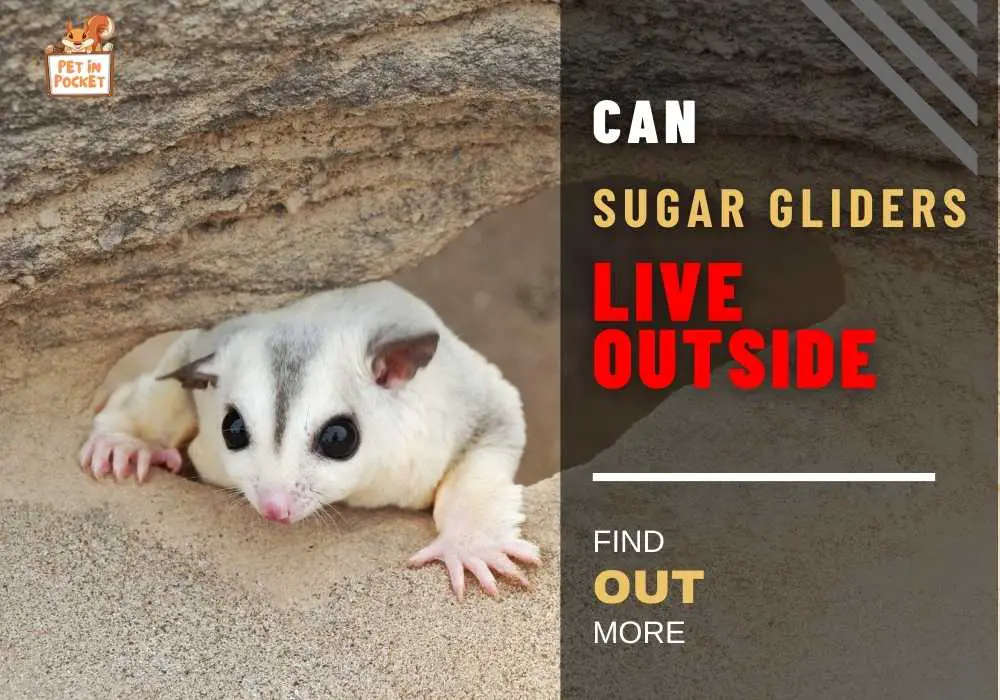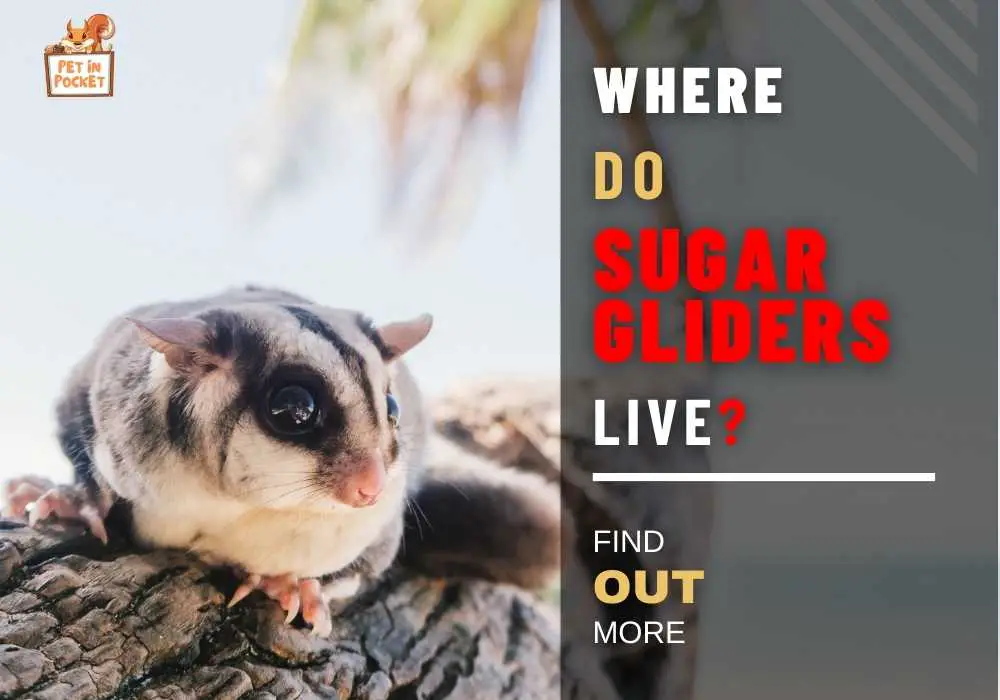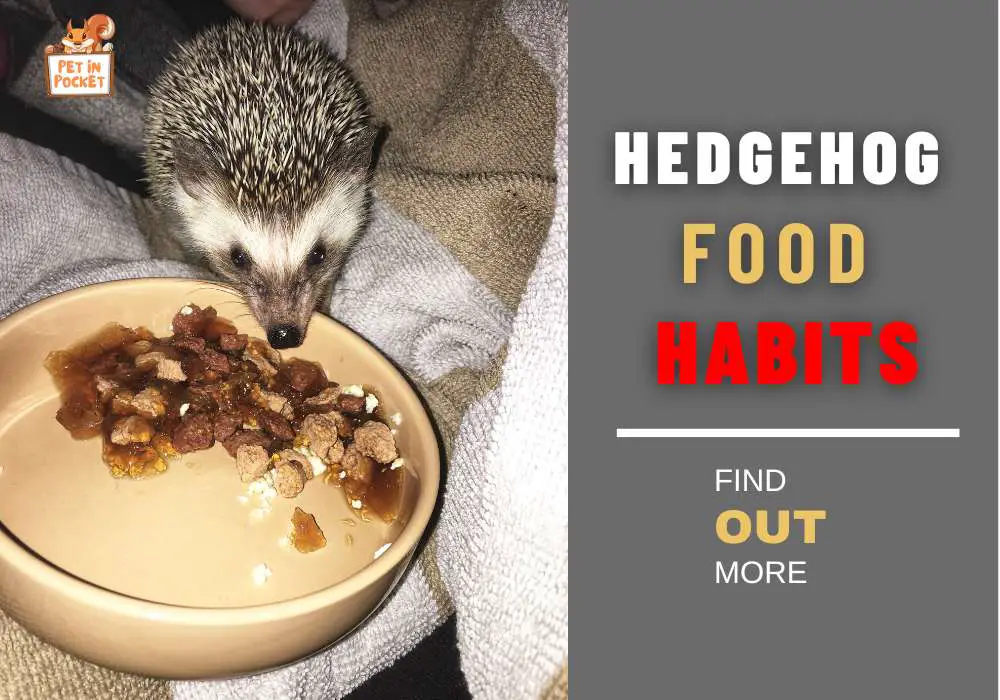Sugar gliders love to eat different kinds of fruit. Fruits provide different nutrition for them. However, not all fruits are safe for them to consume.
As a responsible pet owner, you have questions: what fruits can sugar gliders eat? So, knowing what fruits you should feed your sugar gliders and which ones you should avoid is essential. Here, we’ll discuss the natural diet of sugar gliders and why a balanced diet is essential for their health. We’ll also cover the role of fruits in their diet, including the nutritional benefits they provide and common fruits they can safely eat. Lastly, we’ll highlight some harmful fruits you should avoid when feeding your Pocket size Pet. So, if you want to keep your sugar glider healthy and happy, read on!
Table of Contents
Understanding Sugar Glider’s Natural Diet

Sugar gliders consume a diverse diet, including tree sap, insects, nectar, and fruits, providing essential proteins, fats, and carbohydrates. This varied diet reflects their need for nutrition and the importance of replicating it in captivity for sugar glider owners.
Additionally, sugar gliders are:
- Messy eaters.
- Often foraging for small pieces of food to eat.
- Emphasizing the need for a diet that mimics their natural feeding behaviors.
Understanding these eating practices is essential to maintain the health and welfare of pet sugar gliders kept in captivity. The association of sugar glider veterinarians can provide valuable guidance on creating a suitable diet that meets their nutritional needs without leading to health problems such as calcium deficiency or low calcium levels.
Dietary habits of Sugar Gliders in the wild
We already know that sugar gliders consume a diverse diet of tree sap, insects, nectar, and fruits, with occasional consumption of small rodents. This varied diet is adaptable and influenced by seasonal food availability. As opportunistic omnivores, they have an extensive palate, including pollen, spiders, and gum. The association of sugar glider veterinarians underscores the importance of replicating their natural diet in captivity to prevent health issues like calcium deficiency. Understanding their wild diet aids sugar glider owners in providing a balanced diet for their pet sugar glider, ensuring optimal nutrition and overall well-being.
Importance of a balanced diet for Sugar Gliders
People should remember that proper nutrition is essential for the health of pet sugar gliders. A balanced diet resolves issues like calcium deficiency, low calcium levels, and obesity. Sugar gliders are opportunistic omnivores and need fresh water, live insects, pellet food, and fresh fruit. Monitoring their diet, water intake, calcium levels, and food mix is essential for optimal health. Proper nutrition, including cottage cheese, yogurt, peanut butter, supplements, and pellets, helps prevent potential health issues. Understanding their diet and ensuring balance promotes overall pet health.
The Role of Fruits in Sugar Glider’s Diet

We find that fruits are vital in a sugar glider’s diet, providing natural sugars, essential vitamins, and minerals. Suitable fruits for sugar gliders include pears, berries, figs, honeydew, and raspberries. Additionally, fresh fruits like strawberries, blackberries, raisins, and insects contribute to their health. Incorporating fruits into their diet offers nutrition, hydration, and enrichment for these omnivores, ultimately contributing to their overall well-being. Proper fruit intake is essential for supplementing their diet and overall health as omnivores.
Nutritional benefits of fruits for Sugar Gliders
Pet lovers know that sugar gliders get vital nutrients, including vitamins, natural sugars, and antioxidants from fruits, which are essential for their health. Nutrient-rich fruits such as strawberries, raspberries, grapes, and pears benefit sugar gliders significantly. Fresh fruits also aid in hydration and digestion and provide enrichment for sugar gliders as part of their diet, supplementing their nutrition and supporting their natural dietary needs. Moreover, offering a nectar mix, supplement, pellet, and fresh fruit can enhance their overall diet and nutrition, ensuring their well-being as opportunistic omnivores.
Common fruits that Sugar Gliders can eat
We are already informed that sugar gliders can have a variety of nutritious fruits, including apples, oranges, Cherries, pears, berries, honeydew, watermelon, raspberries, figs, strawberries, blackberries, raisins, and grapes. These fruits provide essential vitamins, natural sugars, and antioxidants for their health. Mixing suitable fruits like honeydew, raspberries, pears, and blackberries can enrich and fulfill their natural dietary needs. Including nutrient-rich fruits in their diet contributes to their overall health and well-being.
Fruits to Avoid for Sugar Gliders

Sugar gliders should avoid citrus fruits among all fruits due to their high acidity levels. Fruits such as oranges, lemons, limes, and grapefruits are unsuitable for sugar gliders. Harmful fruits like kiwi can cause digestive issues and should be excluded from their diet. Raisins, grapes, and figs are toxic and harmful to a sugar glider’s health. Educating sugar glider owners about potentially harmful fruits, like strawberries, can prevent health problems for their pets. Sugar glider owners must know the fruits that can risk their pets’ health.
Harmful fruits for Sugar Gliders and reasons why they should be avoided
We discover that certain fruits, such as grapes, raisins, and figs, can be harmful to sugar gliders. It’s essential to avoid fruits like strawberries that can cause digestive issues and affect calcium levels. Here are the pros and cons of feeding sugar gliders fruits:
Pros
Cons
Educating sugar glider owners about the dangers of harmful fruits is crucial. Offer a balanced diet and avoid harmful fruits to ensure their pets’ well-being.
Frequently Asked Questions
Can sugar gliders eat grapes?
Yes, in moderation without seeds as they can be a choking hazard.
Are bananas safe for sugar gliders?
Yes, they’re a good source of potassium and fiber.
Can sugar gliders eat citrus fruits?
No, they’re too acidic and can cause digestive issues.
Are strawberries safe?
Yes, in moderation, they provide vitamin C.
Can sugar gliders eat apples?
Yes, but remove seeds and core as they can harm your pet.
Conclusion
To summarize, fruits are crucial for sugar gliders, providing essential nutrients and vitamins. However, be cautious and selective when offering fruits to your pet. Some are safe and beneficial, while others should be avoided. Consult with a veterinarian specializing in exotic pets if you need clarification or have concerns about their diet.






Leave a Reply